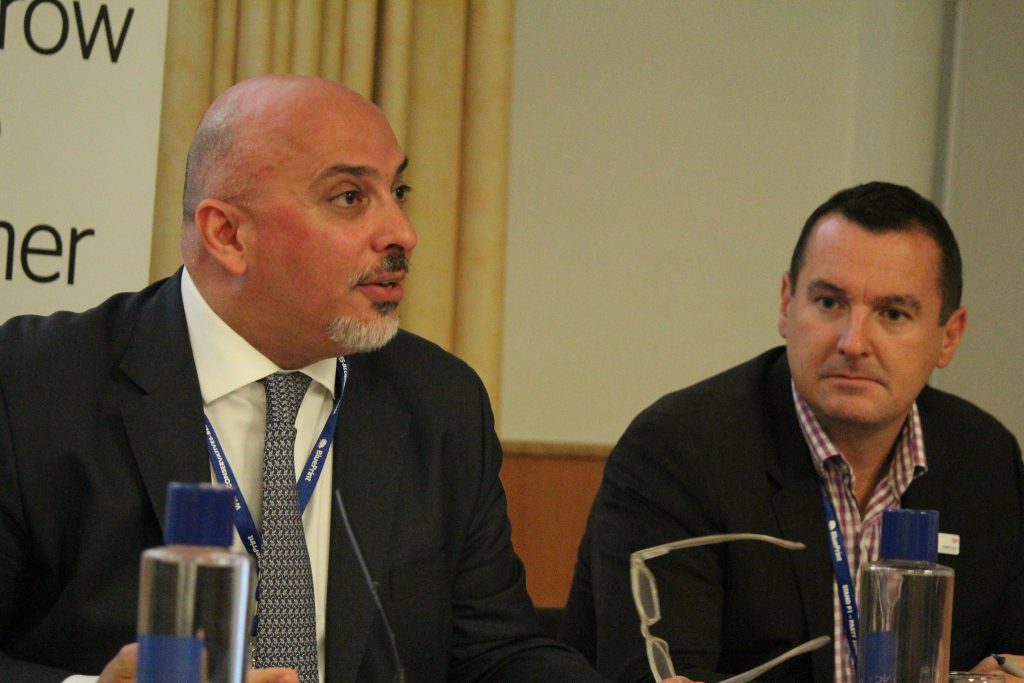Funding shortfalls for special educational needs in schools are causing “untold misery” for thousands of families, a teaching union says, with schools having hit “crisis point” in supporting the most vulnerable children.
Nine out of 10 of local councils in England are “simply unable to provide schools with the adequate resources” to provide specialist educational needs and disability (SEND) support, according to the National Education Union.
The funding shortfall is said to be leaving vulnerable disabled children marginalised to the fringes of the education system and suffering from mental health issues.
The National Deaf Children’s Society has said that if the government fails to listen to teachers, “the potential of an entire generation of disabled children is at stake.”
Most Vulnerable Left ‘On The Brink’

Children on an education health care plan (EHCPs) – a legal document flagging a vulnerable child as needing extra resources – has increased by a third since 2015, to 320,000 analysis by the union found.
But in the same period, just six per cent more government funding has been allocated to local education authorities (LEAs), which the NEU says is leaving them “on the brink.”
This is an appalling way to be addressing the education of some of our most vulnerable children and young people and is causing untold misery and worry to thousands of families.
Joint General Secretary of the NEU, Kevin Courtney
The effect has been exacerbated by the additional duty for local councils since 2014 to support young people up to the age of 25 with EHCPs, which councils say has not been properly funded in its rollout.
The day to day impact in schools has seen support staff such as teaching assistants increasingly overwhelmed, long waiting lists for assessments, and cuts in specialist provisions such as speech, language and occupational therapy.
Joint General Secretary of the NEU, Kevin Courtney said: “This is an appalling way to be addressing the education of some of our most vulnerable children and young people and is causing untold misery and worry to thousands of families.”
The NEU’s report comes ahead of delegates debating whether to launch a national campaign to oppose further cuts in the education sector in Liverpool on Tuesday (16th Apr).
Families Left To Pick Up The Pieces

Children reading in a library
Where schools cannot cope, families are left to pick up the pieces. Several parents revealed a pattern of disabled children being excluded or ‘off-rolled’ (stripped from the register) by schools.
One parent, speaking to The Independent, was “backed into a corner with no choice” into withdrawing her autistic boy from a cash-strapped school.
Other parents told the news website of their child socially withdrawing, such as refusing to eat, wash or even talk, with many prone to depression symptoms and entering into a mental health spiral.
Deaf children are among those hit the hardest
Steve Haines, Director of Policy and Campaigns at the National Deaf Children’s Society
Steve Haines, Director of Policy and Campaigns at the National Deaf Children’s Society, told RightsInfo: “Make no mistake, there’s a crisis engulfing the special educational needs system in this country.
“Government investment is simply not keeping up with rising demand and with local councils starved of funding, children are seeing their support cut back, their specialist teachers laid off and their futures hanging in the balance.
“Deaf children are among those hit the hardest and on average, they now fall a whole grade behind their hearing classmates at GCSE because they don’t get the support they so desperately need.”
Government Denies Funding Cut
 Nadhim Zahawi, minister for children and families. Credit: Flickr/PolicyExchange
Nadhim Zahawi, minister for children and families. Credit: Flickr/PolicyExchange
A report published in 2017 found that more than half of children permanently excluded from schools have a recognised mental health condition.
Disability Charity, Contact says that 7 in 10 children excluded from schools require SEND support, and that 52 per cent of families who raise a disabled child are at risk of experiencing poverty.
Parents have also spoken of needing to give up careers to care for their vulnerable child, out of school for up to years at a time.
Nadhim Zahawi, Minister for Children and Families, said it was not right to imply that funding has been cut.
“We recognise the challenges facing local authorities and in December provided an extra £250m up to 2020 to help them manage high needs cost pressures,” he said.
“We have also provided councils with an extra £100m funding to create more SEND places in mainstream schools, colleges and special schools.”
Several families from North Yorkshire, Birmingham and East Sussex have taken part in a crowdfunding campaign to take Education Secretary Damian Hinds to court over a “national crisis” in SEND provision.
The High Court will hear their case in June.






